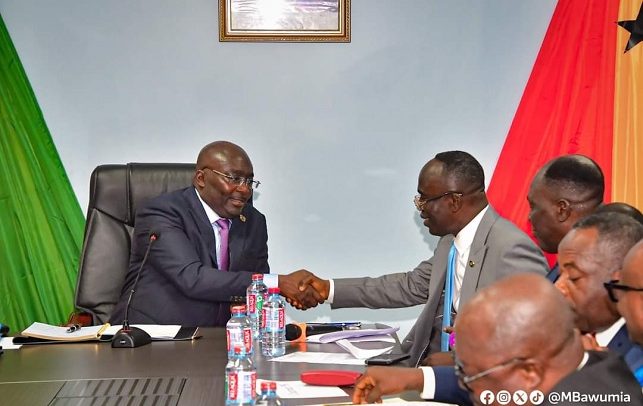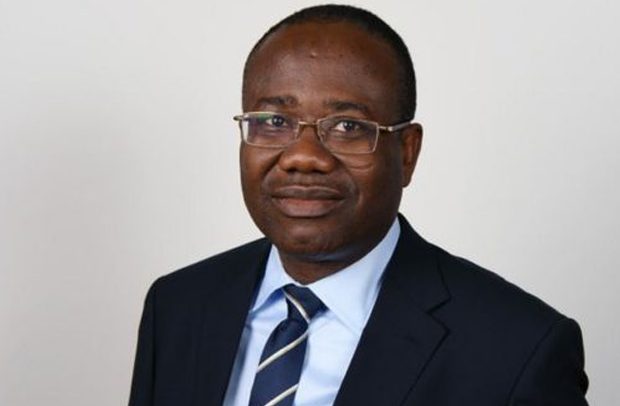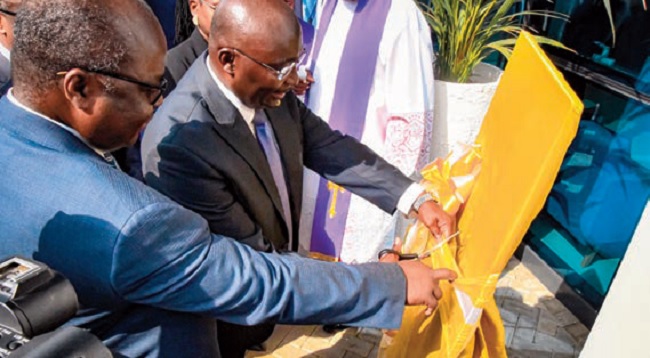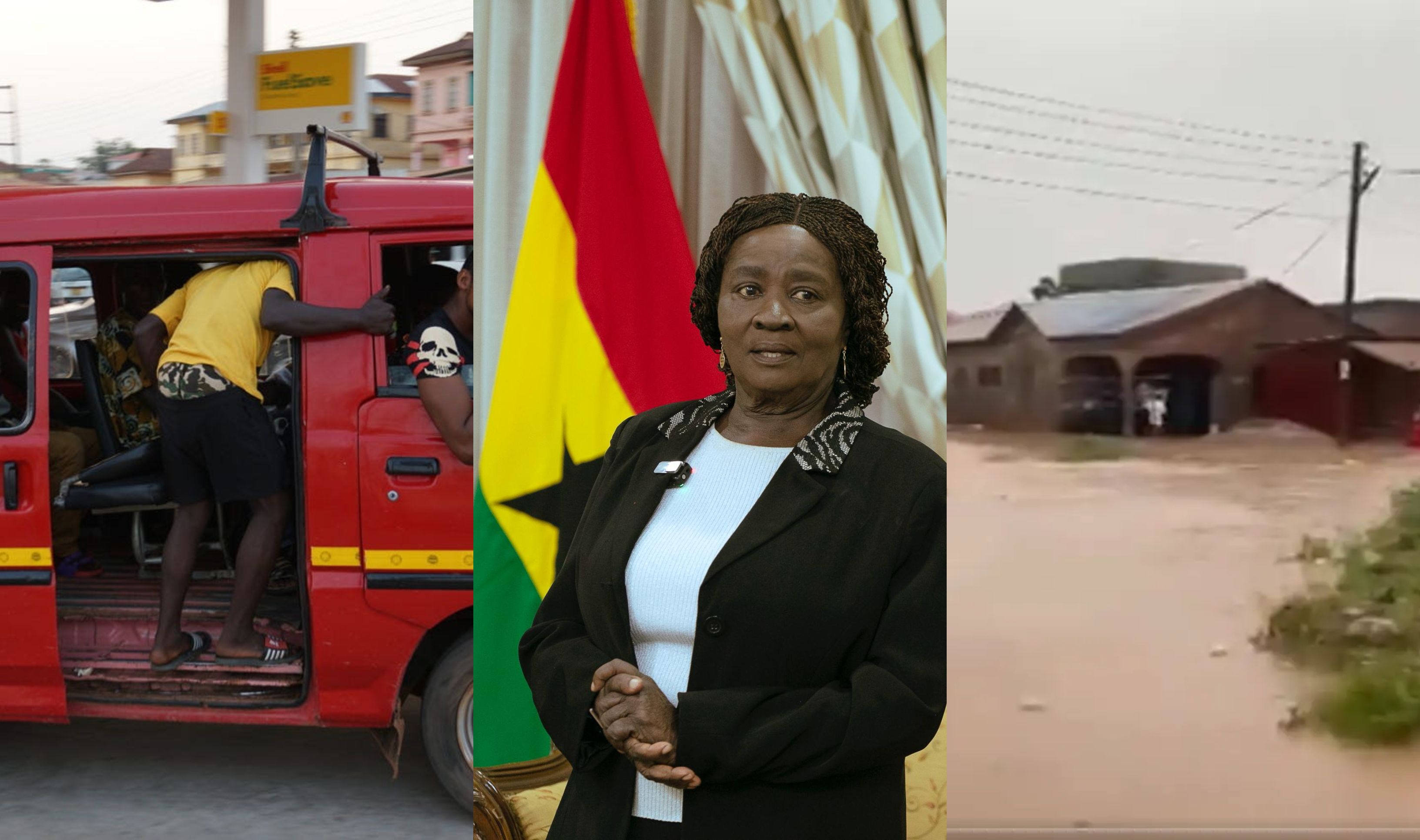
By Kizito CUDJOE
Government will deploy 12,000 net-metered solar photovoltaic (PV) systems by end of third quarter -2025, backed by international financing and local support, the Energy Commission has said.
The acting Director in charge of Renewable Energy at the Commission, Frederick Ken Appiah, said funding has been secured from the African Development Bank (AfDB), Swiss government and Climate Investment Fund (CIF). The Government of Ghana (GoG), he added, will contribute about 25 percent of the total cost.
“This initiative will provide a meaningful boost to clean energy access for homes and businesses,” Mr. Ken Appiah said at the ‘Renewable Energy & Energy Efficiency B2B Expo’ opening in Accra, organised by the Association of Ghana Industries (AGI).
Net-metering allows solar panel users to feed excess electricity into the national grid in exchange for credits on their power bills. The system enables households and businesses to reduce energy costs and lessen reliance on fossil fuels.
The Public Utilities Regulatory Commission (PURC), he added, has already published a tariff framework for the programme. In addition, he said, eligible users will receive a free net meter and may apply for a subsidy to help purchase new solar systems.
“We have completed the regulatory framework. The Energy Commission has published the net metering code and conducted sensitisation for stakeholders including the Electricity Company of Ghana (ECG), Northern Electricity Distribution Company (NEDCo) and Renewable Energy Association of Ghana.”
He confirmed the meters are currently being manufactured by the supplier, with distribution expected to begin by September 2025. Interested households and small businesses, he said, can apply through a mobile-friendly digital platform created by the Commission.
The rollout forms part of the country’s broader renewable energy plan, which aims to grow clean energy capacity from 42.5 megawatts (MW) in 2015 to 1,363.63 MW by 2030 -including 1,094.63 MW from grid-connected systems.
The initiative is also expected to support Ghana’s efforts at meeting its Nationally Determined Contributions (NDCs) under the Paris Agreement.
The Renewable Energy & Energy Efficiency B2B Expo, the first of its kind organised by the Energy Service Centre (ESC) of AGI, was held under the theme ‘Powering Ghana’s Industry through Sustainable Energy’.
AGI president Dr. Humphrey Ayim Darke, in an address read on his behalf, said the current “rising energy costs, inconsistent supply and global calls for climate responsibility have converged to push sustainable energy from the sidelines to centre-stage of industrial strategy”.
He said: “For the Ghanaian industry to remain competitive, productive and resilient, we must align our energy requirements with smarter, greener and more sustainable alternatives.
“Renewable energy must be made viable and attractive for industry. We cannot continue relying on the national grid alone, particularly if we aspire to run a 24-hour economy. Recent power outages in some parts of our country make this ambition difficult to realise.”
He emphasised that to secure a 24/7 uninterrupted, affordable and sustainable power supply for production, there ought to be a balanced strategy. “This is where solar and other renewable sources power administrative functions, lighting and light machinery, while the grid supports heavy-duty industrial operations.”
This hybrid approach, he said, not only eases pressure from the national grid but also opens a new frontier of energy independence for businesses.
However, for this vision to materialise, he argued, that there must be a policy.
The AGI president contended that the initial investment required to adopt solar energy is high. “Import duties on solar panels and accessories remain a significant barrier. If we want businesses to transition, there must be clear, consistent incentives, tax rebates, low-interest financing and expedited approvals for renewable energy projects.
“Moreover, sustainability must be built into our housing and industrial planning. At one point, it was proposed that every new housing unit should be equipped with solar installations. That is the kind of bold policy Ghana needs; a policy that mandates and normalises sustainable energy from the foundation up. If we do this we don’t just free the grid, we empower industry.”
The Swiss Ambassador to Ghana, Benin and Togo, Simone Giger, also speaking at the Expo’s opening session, said renewable energy presents an opportunity to diversify the energy mix, reduce carbon emissions and expand access to cleaner and more affordable power – particularly for underserved communities.
She said it is in line with this effort that the Swiss government, through the State Secretariat for Economic Affairs (SECO), committed US$14million to co-finance the ‘Ghana Solar PV Net Metering Project’ with the AfDB, CIF.
Issifu Seidu, representative of the Minister of State for Climate Change and Sustainability, at the event commended AGI for providing such a platform.
The post Gov’t to roll out 12,000 net-metered solar systems by Sept appeared first on The Business & Financial Times.
Read Full Story















Facebook
Twitter
Pinterest
Instagram
Google+
YouTube
LinkedIn
RSS